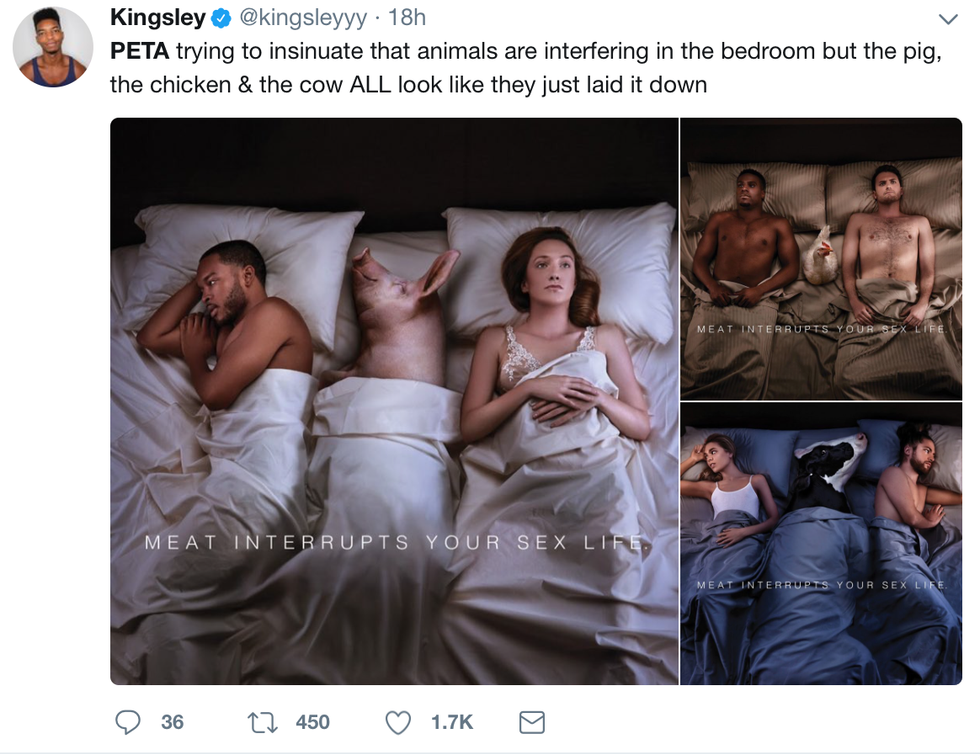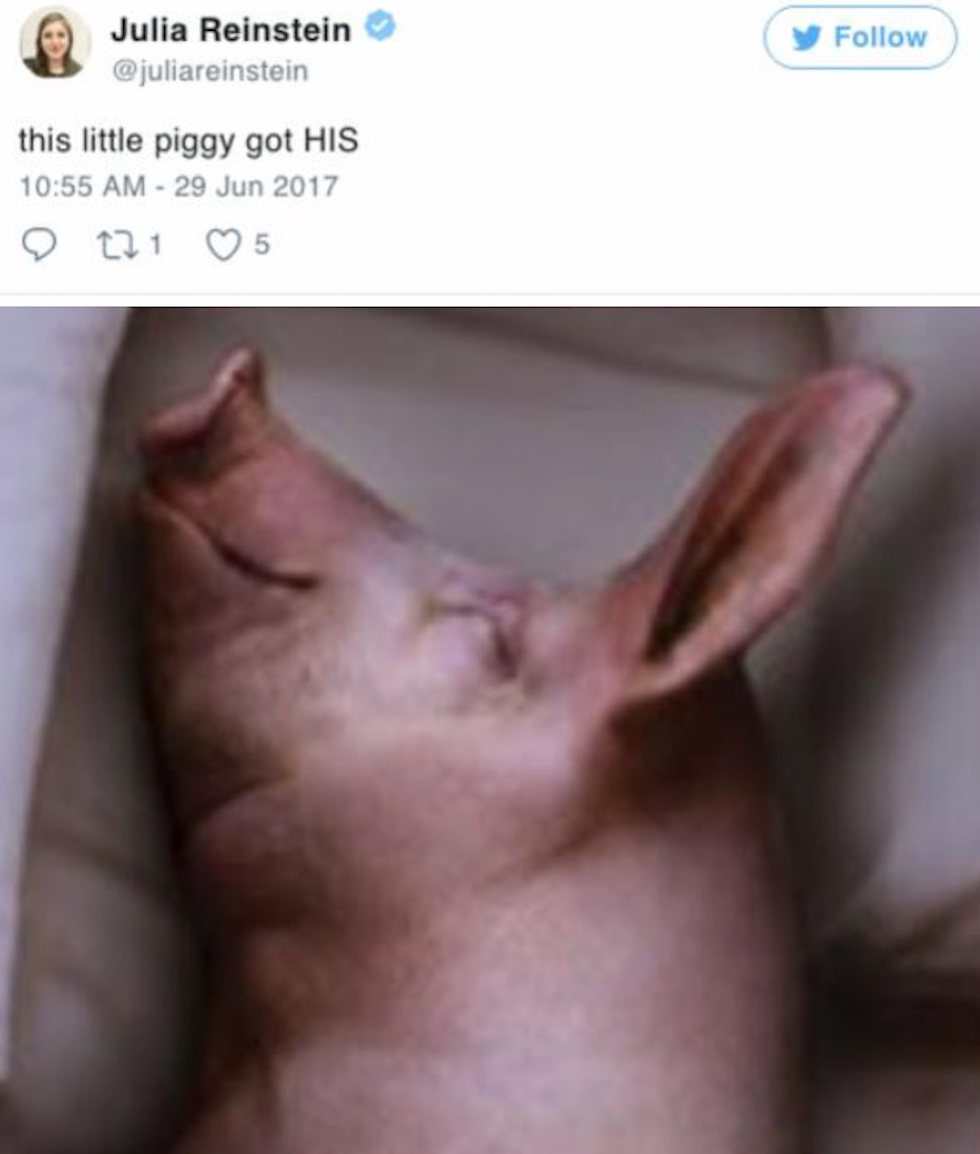PETA’s recent campaign has stirred up a lot of attention in the media and on social networks.
PETA placed billboards along major roads in the southern parts of our country to warn drivers against the dangers of consuming animal products. Everyone loves a great cause, but the problem with PETA’s angle is that it distorts the message being conveyed. Their billboards show a disappointed couple in bed with either a chicken, pig, or cow in between them as the text reads, “Meat Interrupts Your Sex Life.” In our day, what better way to reach people than by shoving sex down their throats — and the rest of their holes. Whether you support PETA or not, this recent campaign makes them just like everyone else. Not to mention, it’s a complete and unoriginal take from their previous sex-related campaign (below).
Advertising Basics
If you do minimal research on advertising, you’ll understand that targeting emotions are the primary source of capturing an audience's attention. These include but are not limited to fear, humor, and sex. A good campaign will touch the targeted emotion of the viewer and maybe even stick to their memory, but a stellar campaign will fulfill its duty in moving you to do what they are pushing for.
In this particular case, PETA is pushing their audience to take accountability for animal cruelty and stop the consumption of animal products through the effects of poor blood flow. Measuring their campaign’s success is just a tad tricky. Although controversial, the audience is making a big joke out of the message. I doubt this is what PETA was going for.
Response to the video campaign:
Is the public to blame? Sexualization in advertising is nothing new. Companies promote car sales with women in barely there bikinis while fragrance companies use the draw of intimacy and desire to promote their perfumes and colognes.
In a recent study it was noted while sex in advertisements might grab attention, it doesn’t always succeed in getting people to buy what was being sold.
PETA’s billboard definitely succeeded in grabbing our attention and this makes their campaign good. But, how effective is PETA’s campaign in actually converting meat-eaters to a plant-based diet? From the response this campaign received, it doesn’t seem to have been stellar.
Let’s talk about sex.
Good sex, bad sex, and great sex is something many experience. Blaming the consumption of meat for a poor sex life isn’t the only thing wrong with this campaign. If you watched the video that was included above, you notice how the meat-eating couple can’t continue their love making while the vegan couple continues on. It seems like the male demographic is targeted as the ones to blame while the women are left to be disappointed. So, does the advertisement convey that meat interrupts sex or does it interrupt the male stamina?
I doubt many people will contemplate long and hard on the effects meat has on their sex lives after seeing pictures of these billboards. Not only were the responses pointing fun at the campaign, but alcohol consumption, lack of trust, and poor communication are but a few of the factors that can and continue to interrupt sex. Food isn’t to blame for a shitty sex life. You are to blame. Food isn't to blame for poor health. You are to blame.
Educate yourself.
While it is true that too much cholesterol and protein can clog arteries, it is not the cause to blame for an unsatisfactory sex life. A well-balanced diet accompanied by frequent exercise will keep your blood flow in check. It’s not the consumption of meat that is cruel, it is the system of slaughter and animal raising that is cruel. Going meatless is a noble task, but let’s remember that we are all on different walks. We must educate ourselves and each other in ways that do not discriminate or make less of an important message.
It is none of my business as to what you put on your plate just like it is none of your business as to what I put on mine, but animal cruelty is real and it does play a crucial role in our lives.
Many of us don’t think twice about where our food comes from.
“On that first morning she gave me some food and it was old, moldy, as if she had saved it specially for me in order to make me sick. I did not eat what she gave me after that; I learned then how to prepare my own food and made this a trait by which other would know me: I was the girl who prepared her own food.” — Jamaica Kincaid’s The Autobiography of My Mother
This literary example is both directly and indirectly related to the power food possesses. Knowing where your food comes from puts the control back in your hands for your overall well-being.
The main killers of humans since the advent of agriculture have been acute, highly infectious, epidemic diseases that are confined to humans and that either kill the victim quickly or, if the victim recovers, immunize him/her for life, according to Springer Nature.
Although I am not pushing for an animal-free diet, I do believe in sharing information that might help others for the better.






















